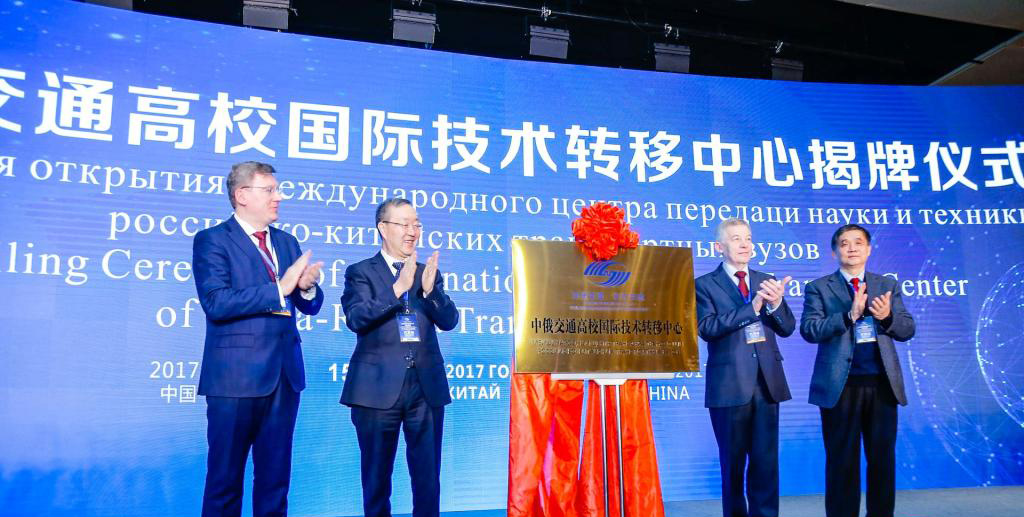Universities explore ways to ramp up cooperation on transportation

The Unveiling Ceremony of the International Technology Transfer Center of China-Russia Transport Universities is held at the fourth China-Russia Transport University Rectors Forum.
The fourth China-Russia Transport University Rectors Forum was recently held in Xi’an, capital of Shaanxi Province. Organized by the Chinese People’s Association for Friendship with Foreign Countries (CPAFFC) and Chang’an University, it highlighted transportation infrastructure networks and university cooperation.
Song Jingwu, vice-president of the CPAFFC, said that the focus on infrastructure and higher education cooperation is a boon to China-Russia strategic relations and an active response to the “Belt and Road” initiative and Eurasian Economic Alliance initiative.
Held in St. Petersburg, Russia, in 2014, the first session launched a Sino-Russian Transportation University Alliance, providing a platform for university cooperation. Thanks to the effective operation of the alliance, this year’s event also involved participants from BRICS and countries along the proposed routes of the “Belt and Road” initiative, such as Brazil, India, South Africa, Malaysia, Egypt and Ukraine. Cooperation among universities has contributed greatly to the integration of global transportation.
Ning Bin, president of Beijing Jiaotong University, said that talent training in the field of rail transit should be prioritized. Project practice is a crucial way to cultivate engineers while fundamental theories are a tool that researchers must have. Well-rounded professionals need to track the sector’s development, and those with global insight can serve the national strategy. All of them should pay attention to innovation.
Alexander Panychev, president of St. Petersburg State Transport University, emphasized cooperation on transportation. He pointed out that ongoing cooperation between the two states has a strong momentum and Russian universities are willing to work together with Chinese counterparts to deal with tough issues. He hopes more universities will join the alliance to further facilitate exchanges across the globe and foster more profound and extensive educational cooperation. He also proposed building an educational community of common destiny based on the “Belt and Road” initiative.
Levin Boris, president of Moscow State University of Railway Engineering, suggested the universities should strengthen partnerships in such aspects as education of dual master’s degrees, joint investment projects for scientific education, research centers for Russian and Chinese languages, thus serving national strategies. Transportation universities of the two countries should make full use of their role in talent training and scientific research.
Du Yubo, president of the China Association of Higher Education, said that the annual forum has become a major platform for human and cultural exchanges between the two sides. It deepens university cooperation on transportation and promotes the global influence of the two countries’ higher education sectors while improving the openness of education and the development of transportation.
Human exchanges are vital to relations between countries. Chinese universities should develop more students who are oriented toward the overseas market. They can join forces with enterprises and help them go global. Chen Feng, president of Chang’an University, suggested an information-sharing system for universities, research organs and companies in the countries along the proposed routes of the “B&R” initiative. Such a move can facilitate international technological cooperation and transfer starting with the establishment of an information platform, solutions to technological problems and construction of an integrated development system. As a result, productive achievements could be made in talent training for the transportation sector, joint scientific research, collective research on crucial global and regional projects as well as technological services and consultation, Chen said.
